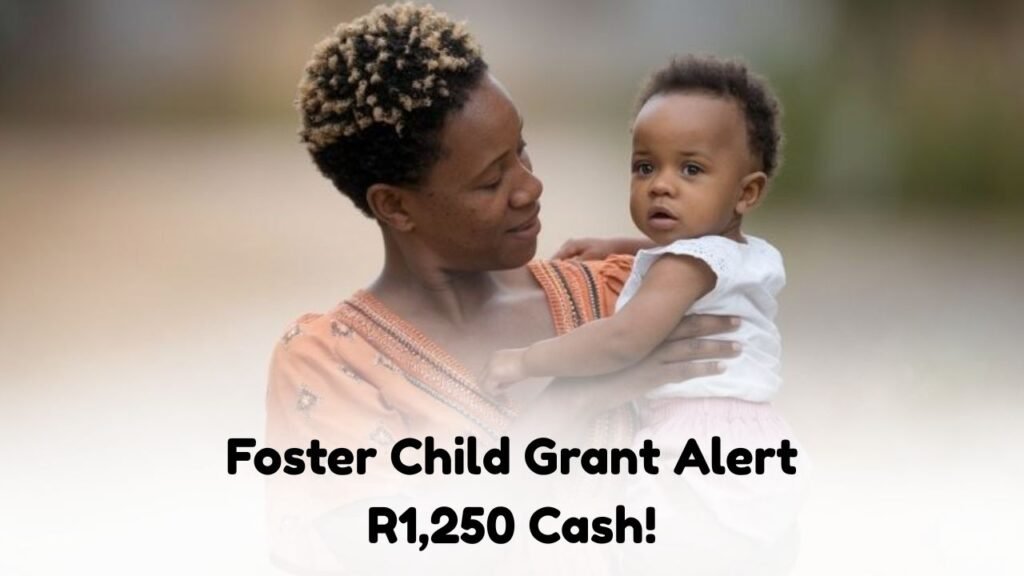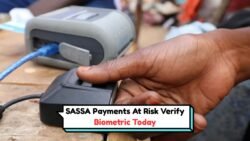SASSA Foster Child Grant Disbursement: Amidst the evolving social support landscape in South Africa, the South African Social Security Agency (SASSA) remains committed to providing financial assistance to vulnerable children. In a significant move, SASSA is set to disburse R1,250 for foster children starting from September 5. This initiative is a part of the broader effort to support foster families, ensuring that children under their care receive the necessary resources to thrive. As the cost of living continues to rise, this grant plays an essential role in helping families manage expenses related to education, healthcare, and daily sustenance, providing stability and hope for a better future.

Understanding the SASSA Foster Child Grant Disbursement
The SASSA Foster Child Grant is a vital component of South Africa’s social welfare system. Designed to alleviate the financial burden on foster families, this grant ensures that children who have been placed in foster care receive adequate support. With the upcoming disbursement of R1,250, SASSA aims to address both immediate and long-term needs of these children. The funds can be utilized for various purposes, such as school supplies, clothing, and medical care, which are crucial in fostering a nurturing environment for growth and development. The grant also highlights the government’s dedication to safeguarding the well-being of children who are not in the care of their biological parents. By providing this financial aid, SASSA reinforces the importance of community support and shared responsibility in raising the next generation.
Key Dates and Eligibility for the Foster Child Grant
To ensure seamless access to the SASSA Foster Child Grant, it is essential for eligible families to be aware of the key dates and criteria. The grant, scheduled for disbursement on September 5, will be available to foster parents who have been legally appointed by a court. Eligibility is contingent upon providing necessary documentation, including a court order confirming foster care placement and a certified copy of the child’s birth certificate. These requirements are in place to ensure that the assistance reaches those who genuinely need it. SASSA has streamlined the application and disbursement processes, minimizing bureaucratic hurdles for recipients. Furthermore, beneficiaries are encouraged to keep their information updated with SASSA to avoid any delays in receiving the grant. This proactive approach by SASSA underscores its commitment to transparency and efficiency, ensuring that the foster child grant supports the intended recipients promptly and effectively.
Impact of the R1,250 Grant on Foster Families
The impact of the R1,250 grant on foster families extends beyond mere financial relief. For many, it represents a lifeline that enables them to provide the necessary care and stability that foster children so desperately need. In a country where economic disparities are prevalent, this grant helps bridge the gap by offering foster children opportunities they might not otherwise have. Educational expenses, such as tuition fees and school uniforms, can be a significant burden, and this grant assists in alleviating some of these costs. Moreover, the grant empowers foster parents to create a more enriching and supportive home environment, which is crucial for the emotional and psychological development of the children. By easing financial stress, foster parents can focus more on nurturing and guiding the children, contributing to their overall well-being and future success.
Future Prospects for SASSA Foster Child Support
Looking ahead, the role of SASSA in supporting foster children is likely to evolve in response to changing social and economic dynamics. The agency’s commitment to improving the lives of vulnerable children remains steadfast, with potential plans for increasing the grant amount or expanding eligibility criteria being considered to further enhance support. Collaborating with other governmental and non-governmental organizations, SASSA aims to develop holistic programs that address not only financial needs but also educational and social requirements. Such initiatives could include partnerships with educational institutions to provide scholarships or with healthcare providers to offer comprehensive medical care. As South Africa continues to navigate complex socio-economic challenges, SASSA’s efforts to bolster the foster care system underscore the importance of adapting social support mechanisms to meet the needs of all children, ensuring that every child has the opportunity to reach their full potential.




